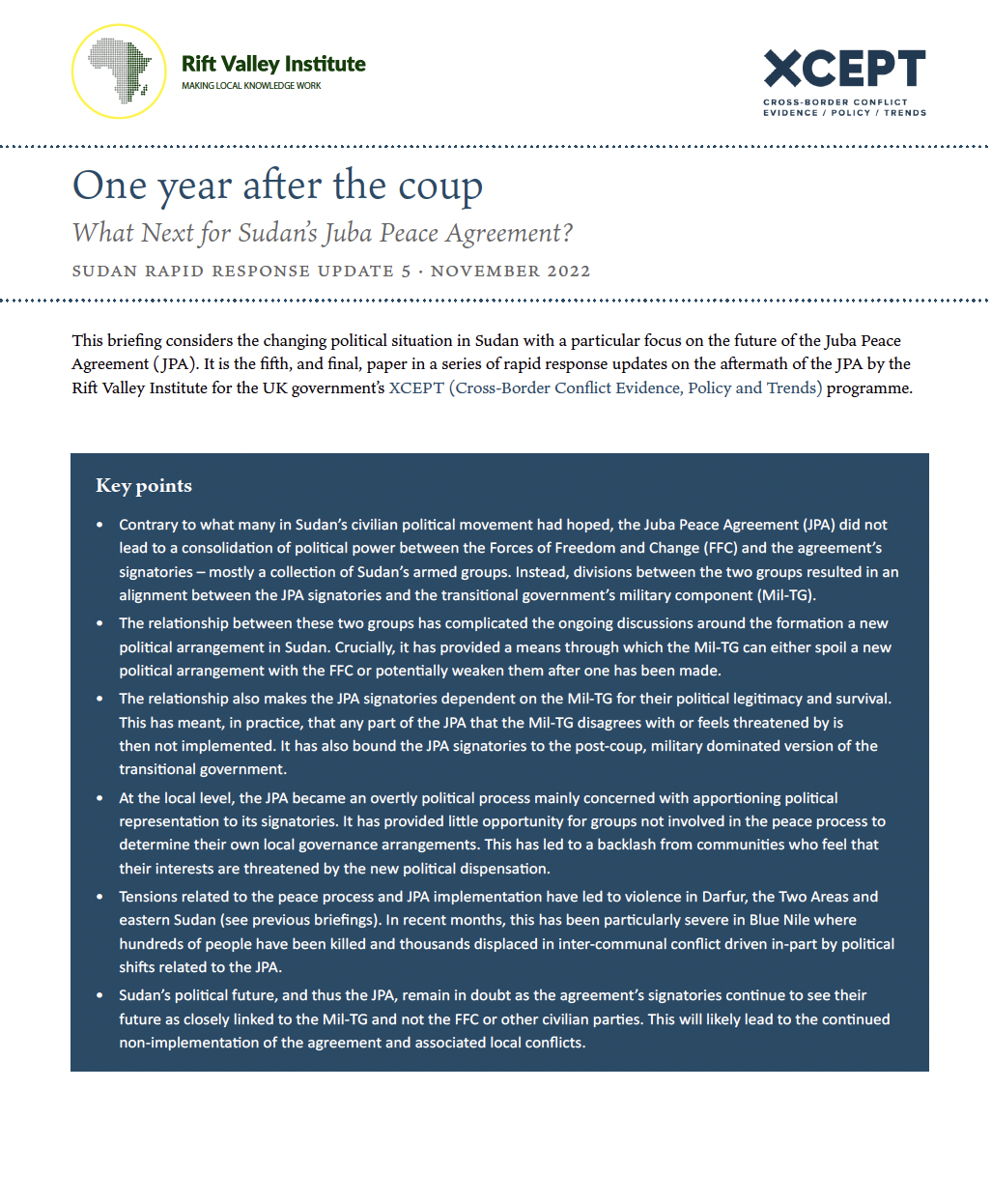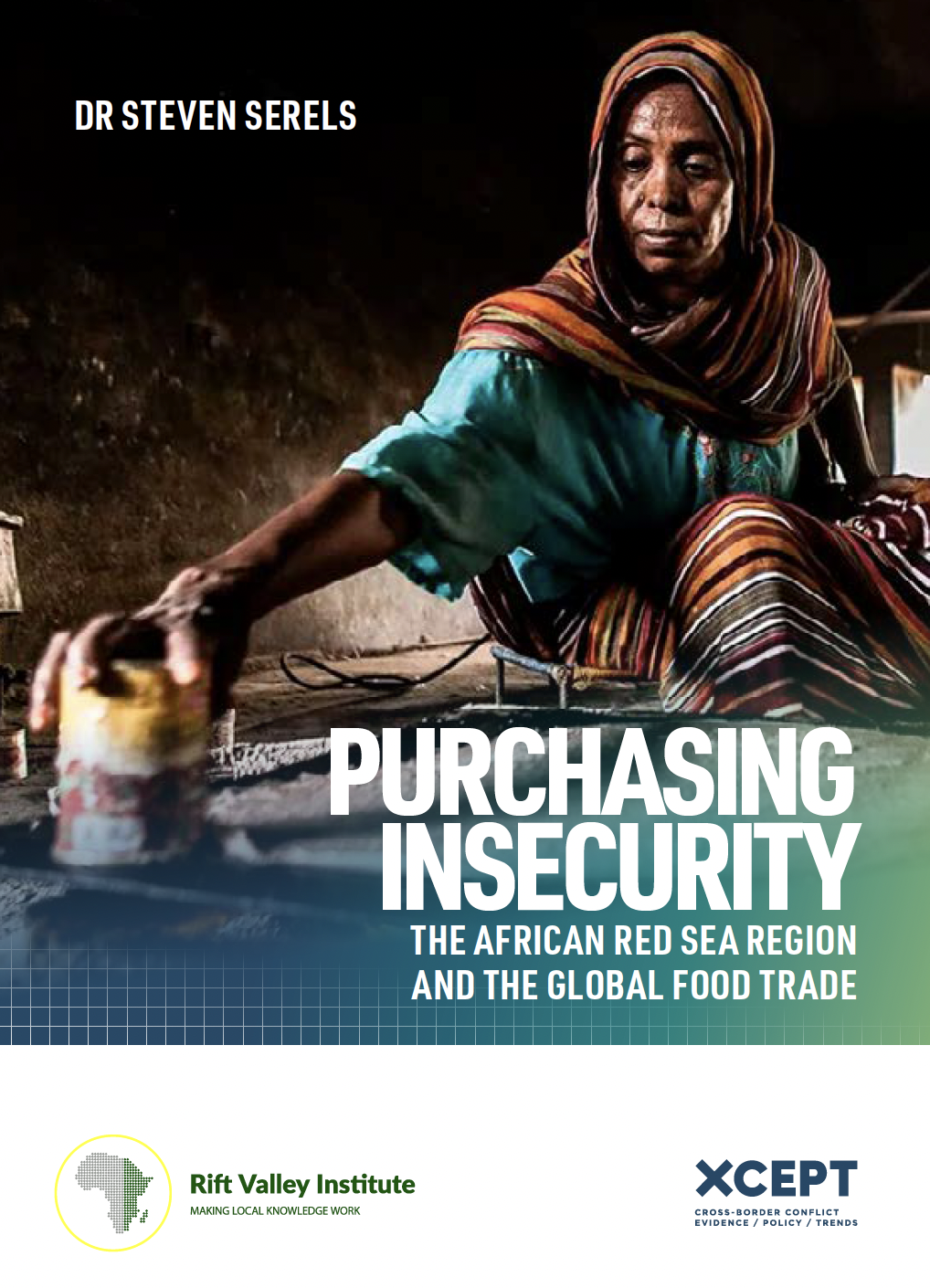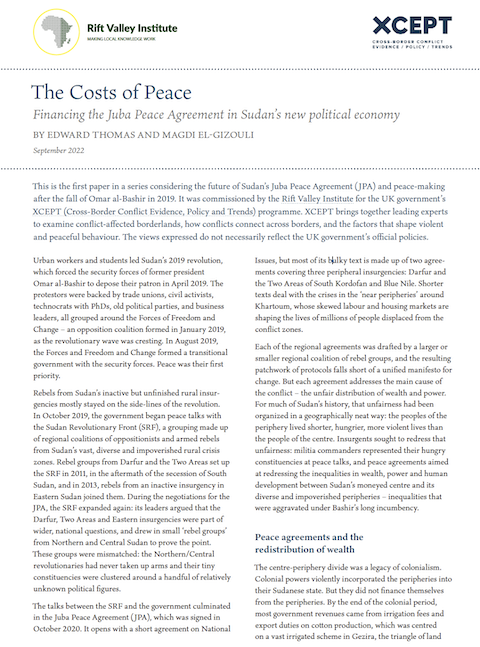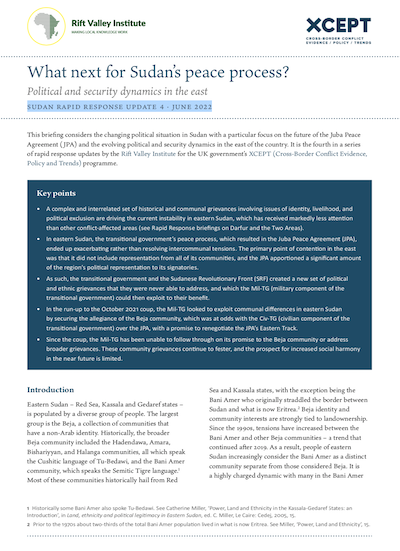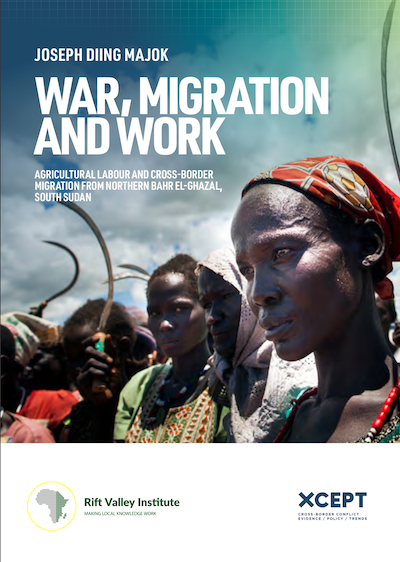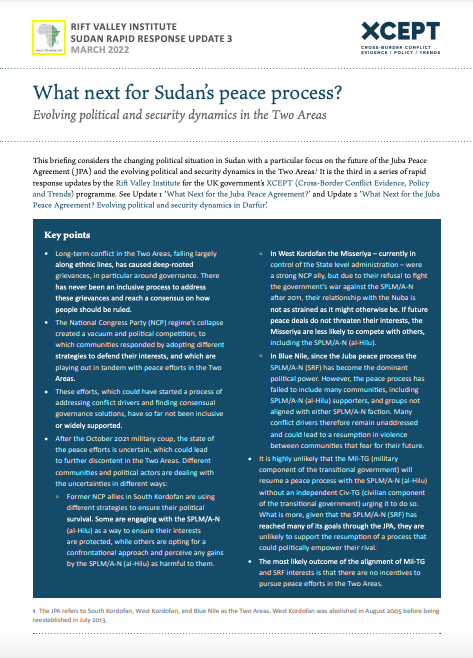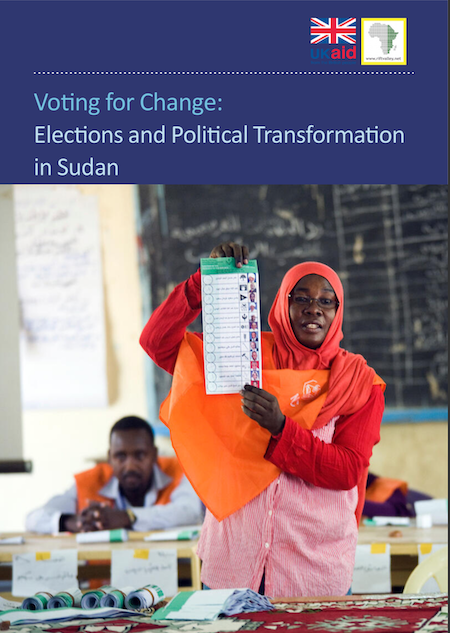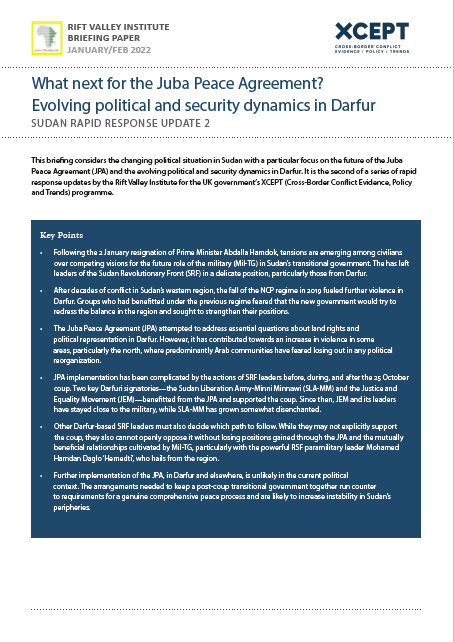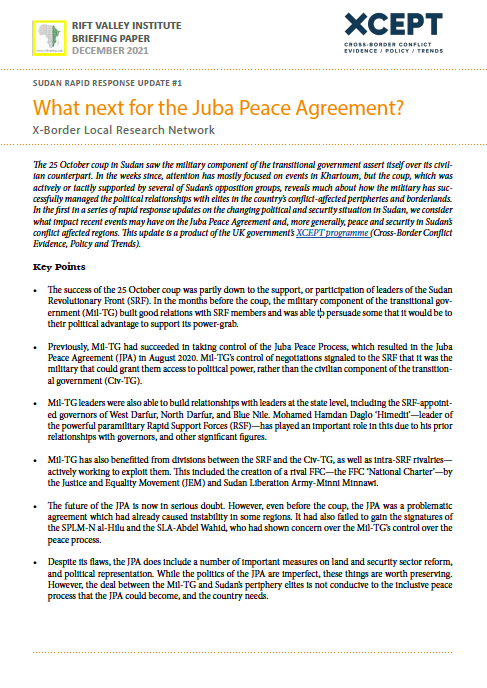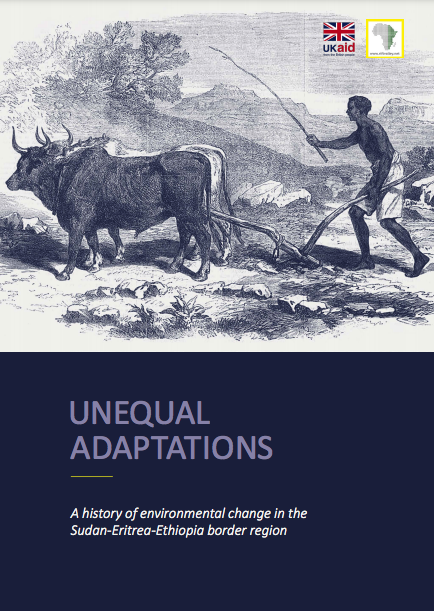This briefing considers the changing political situation in Sudan with a particular focus on the future of the Juba Peace Agreement ( JPA). It explores how the relationship between two key factions in the conflict has complicated the ongoing discussions…
RVI publishes books, research reports, research papers, briefings and meeting reports in a range of formats. Publications cover policy, research, arts, culture and local knowledge in the countries of eastern and central Africa. Research publications—books, reports and papers—are peer-reviewed. Some RVI publications are also available in French and/or Arabic.
The RVI is a signatory of the Budapest Open Access Initiative (2001); all publications are free for download in PDF format under Creative Commons licences. The views expressed in books and reports published by the RVI are those of the authors, not the Institute.
SEARCH
PUBLICATION TYPE
LANGUAGE
REGION
COUNTRY
The African Red Sea Region does not produce enough food to feed its own population. Sudan, Eritrea, Ethiopia, Djibouti and Somaliland (Somalia) are each reliant on imports to make up for domestic production shortfalls. This presents unresolved challenges to…
This is the first paper in a series considering the future of Sudan’s Juba Peace Agreement (JPA) and peace-making after the fall of Omar al-Bashir in 2019. It was commissioned by the Rift Valley Institute for the UK government’s…
This briefing considers the changing political situation in Sudan with a particular focus on the future of the Juba Peace Agreement (JPA) and the evolving political and security dynamics in the east of the country. It considers the role…
War, Migration and Work examines the history of labour migration and labour relations in present day South Sudan’s Baher El-Ghazal borderlands with Darfur and Kordofan (regions of present day Sudan). Beginning in the nineteenth century, the report charts the evolution…
This briefing considers the changing political situation in Sudan with a particular focus on the future of the Juba Peace Agreement (JPA) and the evolving political and security dynamics in the Two Areas. It is the third in a…
Sudan’s political transition, which began following the ousting of Omar al-Bashir in 2019, is designed to lead up to—and be advanced by—national elections. Those polls will be crucial to the success and credibility of political transition, but they carry…
This briefing considers the changing political situation in Sudan with a particular focus on the future of the Juba Peace Agreement (JPA) and the evolving political and security dynamics in Darfur. It is the second of a series of…
The 25 October coup in Sudan saw the military component of the transitional government assert itself over its civilian counterpart. In the weeks since, attention has mostly focused on events in Khartoum, but the coup, which was actively or…
The Sudan-Eritrea-Ethiopia border region has long been a place of deep interconnection. Historically, collaboration across ethno-linguistic and religious divides allowed communities to develop life-sustaining complementary strategies for utilizing the region’s natural resources. These traditional patterns of human-environment interaction both…
Recent Publications

Rethinking Aid in Sudan and South Sudan
January 28, 2026
The brief draws on a joint convening held in Kampala, Uganda, in November 2025, which brought together more than 45 Sudanese and South Sudanese participants representing more than 30 grassroots organizations and international NGOs. Its primary objective is to amplify

EWNET Writes: Writing Workshop Session I
December 18, 2025
The Ethiopian Women Researchers Network (EWNET) inaugural writing workshop series aims to not only provide women researchers with uninterrupted time for their scholarly projects, but also build a supportive academic community. The first session, entitled ‘EWNET Writes: Writing Workshop Session

SSC-Khaatumo: Perspectives on the significance and implications of its formation
December 12, 2025
On 15 April 2025, during a visit to the city of Las Anod in Sool, Prime Minister Hassan Abdi Barre officially declared the federal government’s recognition of SSC-Khaatumo (SSC-K hereafter) as a federal member state, marking an important milestone in

